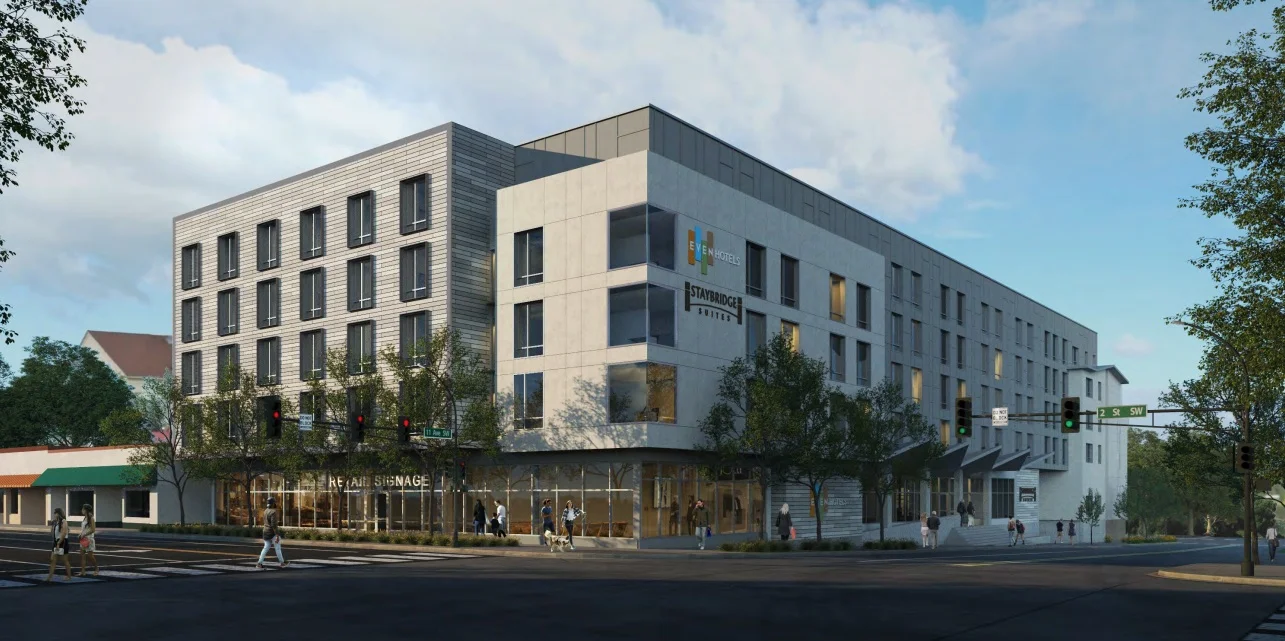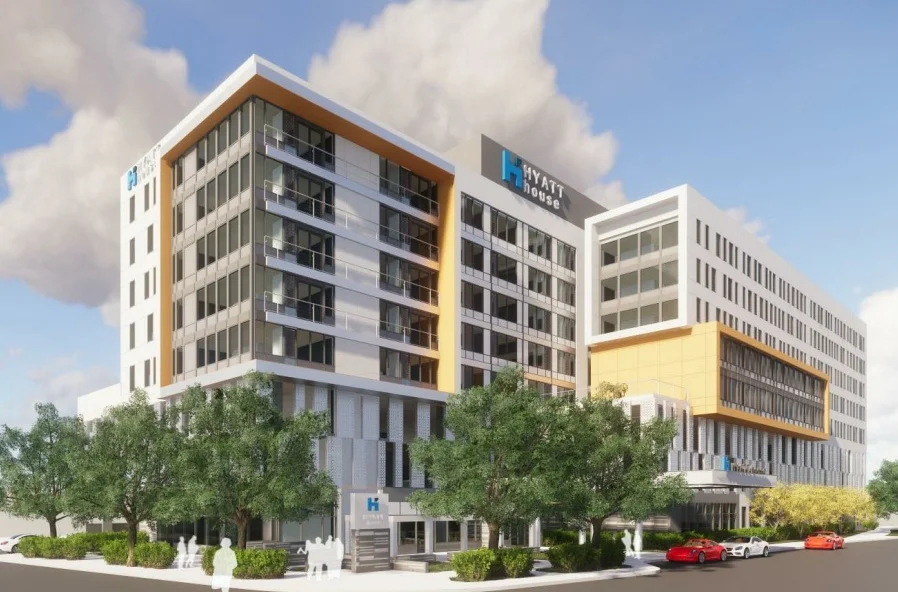Council approves TIF district for Second Street hotel
The Rochester City Council voted Monday to create a tax increment financing (TIF) district for a proposed hotel on Second Street.
Doing so all but guarantees the city will put $1.8 million in TIF toward the project, located on the former site of Virgil’s auto. The tax assistance will be used to cover site preparation, demolition, and utility relocation work.
The motion passed 4-3. Campion, Keane and Wojcik voted nay.
The $1.8 million figure represented a funding gap that the developer, EKN Development Group, needed to cover in order for a “timely redevelopment of a prime property location,” according to city administration.
Ahead of Monday’s meeting, Deputy City Administrator Terry Spaeth had provided the council with a memo outlining staff’s recommendation:
Without financial assistance the project may not come to fruition and the property may remain vacant for some time, as it often take multiple years to get plans, and specifically, the financing in place to get a redevelopment project completed. Providing a small amount of funding assistance would help facilitate the project construction and provide a significant amount of future property taxes.
Prior to coming before the council, EKN had been working on a financial agreement with the Destination Medical Center EDA. The developer’s initial TIF ask had been in the ballpark of $6 million.
Patrick Seeb, DMC’s director of economic development and placemaking, said while supportive of the project itself, his agency told EKN that they were not confident the DMC Corporation would consider the request.
“We did advise the developer that the DMCC board is really keen on moving more toward public infrastructure, transportation investment, public realm, sewers and sidewalks,” said Seeb. “And certainly some private projects will come forward and likely receive support, but we felt that the board may feel like it has invested in hotel infrastructure significantly.”
EKN eventually withdrew its application to DMC, and began to seek alternative ways to fill the funding gap for the project. They later went to the city with an ask of $2.1 million (adjusted to $1.8 million).
On Monday, the developer indicated the project might not get done but for the city support. “We’re in a situation where we’re kind of late in the economic cycle,” a financial representative from EKN told the council. He added that investors are “getting nervous” about achieving the kinds of returns required to take on the risks associated with the project.
Project costs for the five-story, 250-room hotel are estimated at $58 million, including about $6 million for property acquisition. The site is located directly across the street from St. Marys Hospital.
The city says based on tax increment estimates, the $1.8 obligation would be repaid in five years. After that, the project would provide approximately $770,000 annually to the local taxing jurisdictions.
“It meets the qualifications,” Mayor Kim Norton said of the project.
How we got here
The project first made its way into the news in early 2018. But it was events that happened later that year that made this project different than other recent downtown hotels that have come before the council.
In the span of a few months, two big things happened: First, an analysis was released that concluded that downtown has enough hotels planned to meet DMC needs for the next five years. Second, the city council passed a policy with new provisions on when and how TIF should be used.
The result of the two has been heightened attention on how the funding mechanism is used. If used judiciously, TIF can help advance city priorities. If used too liberally, it can be perceived as a windfall for investors.
Council Member Campion, who drafted the aforementioned TIF guidelines, said he wants to see tax assistance used to take projects “above and beyond,” rather than seeing it simply included in a baseline budget.
“It’s time, not just for DMC, but probably time for us generally, to be a little bit more thoughtful about the hotel financing,” said Campion. “This is not about the particular project, but it is about, overall, our use of TIF to support these projects.”
The spokesperson for EKN said it’s ‘apples and oranges’ comparing the hotel to others in the marketplace. Some, such as the Hilton, required TIF support. Others, such as the proposed Gonda expansion, are not seeking public assistance. In the case of their proposal, EKN noted they have worked with neighbors and made accommodations to the building. The site also requires demolition and digging into the ground.
Pointing to city support for other hotel projects, Council Member Shaun Palmer said it was important the city remains consistent with its messaging to developers. Projects of this size, he said, can take years to put together.
“I don’t think we are being consistent in what we ask for in the amount of time it takes to plan these projects,” said Palmer.
In response to questions from Palmer about DMC’s updated expectations, Seeb said the data from the analysis was made public last year — both through the media and at two DMC-sponsored real estate forums.
He said the goal is not to discourage hotel investment, but rather to make the best use out of a limited pool of funds. “I think we have been quite transparent in the goal of addressing a need for hotels, and transparent in the progress that’s been made in meeting that goal,” said Seeb.
Because the project will not go before the DMCC Board, the city’s TIF contribution will not count toward its $128 million portion of DMC.
This is California-based EKN’s third project in Rochester. The company is also responsible for the new Hyatt House hotel going up on the former American Legion site, as well as the remodel of the old Holiday Inn.
Sean Baker is a Rochester journalist and the founder of Med City Beat.








